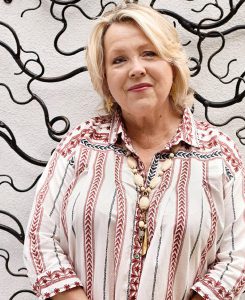Resolve past hurt by looking inwards instead of blaming others says Emma Cannon
A trigger is something that sets off a bad memory or flashback, transporting the person back to the event of their core wounding or trauma. It’s a reminder of a past hurt; it need not be verbal, it might be a smell, or an image, for example. Sometimes it will spark the fight-or-flight survival response in the body. No one wants the uncomfortable feeling of being reminded of a past trauma, consciously or unconsciously. No one feels good witnessing their own over-reaction to a relatively minor event or conversation. But, as painful and difficult as they are, triggers can have their uses – reminding us of the emotional work that still needs doing. Sometimes, the way to deal with the pain of the past is to confront it in the present. Noticing our own reaction to people and situations, and wanting to change that can be the first step towards healing.
But, like a gun, the trigger is just a small part of the picture. With any weapon of destruction, there is a powerful amount of ammunition ready to explode when the trigger is pulled. It is the ammunition that is the important thing here; not the trigger. The trigger is just the messenger.
So who or what is your trigger? If you find yourself regularly reacting to someone, something or any other stimuli that creates discomfort, the trick is not to say: ‘that person really triggers me’ or ‘that person is the problem’. The real growth is in asking yourself: ‘why do I continue to react to this person (or situation)?’
Many people act defensively when they are triggered. This is because they feel vulnerable, revealed or laid bare. Our natural inclination is to want to protect our wounds.
The bigger the reaction to the trigger, the bigger the wound behind it. Notice the situations where you act defensively, are quick to anger, or where you get a bodily sensation such as a surge of adrenaline. Gabor Mate (one of my favourite teachers on the subject) says that once you notice that you have been triggered, you have two choices. One is to blame the other person – emotionally punish them in some way, either through withdrawal and sulking, or by attacking them for triggering you. Or, you can take a breath, give yourself a moment, and when you have composed yourself, practise some self-inquiry as to where the wounding inside of yourself may have come from. Notice how you feel in the body and just observe yourself without judgement.
If you always take the first option, you will continually deny yourself the opportunity to take responsibility to evolve and heal your past wounds. Your past will keep having a negative impact on your ability to be happy in the present. You will always experience the world as something that happens to you, a life in which you are a helpless victim at the mercy of bad guys and bullies. You will never grow, and will remain stuck in the story you have constructed around yourself that prevents you from being happy, authentic and whole. Your life will become a painful cycle of victimhood.
If you decide to take the second option, you will not be defined by the small stories of your life and you will be emotionally free to live as your true self, not as the injured version of yourself. Recognising that you have wounds that still need healing can be the first step on the road to recovery, and may lead you to seek counselling or other forms of therapy.
Emma is an integrated women’s health expert, registered acupuncturist and author emmacannon.co.uk
Article by
Emma Cannon
Integrated Health Expert & Acupuncturist
is a women’s integrated health expert & acupuncturist
Discover more
Article by
Emma Cannon
Integrated Health Expert & Acupuncturist
is a women’s integrated health expert & acupuncturist
Discover more























